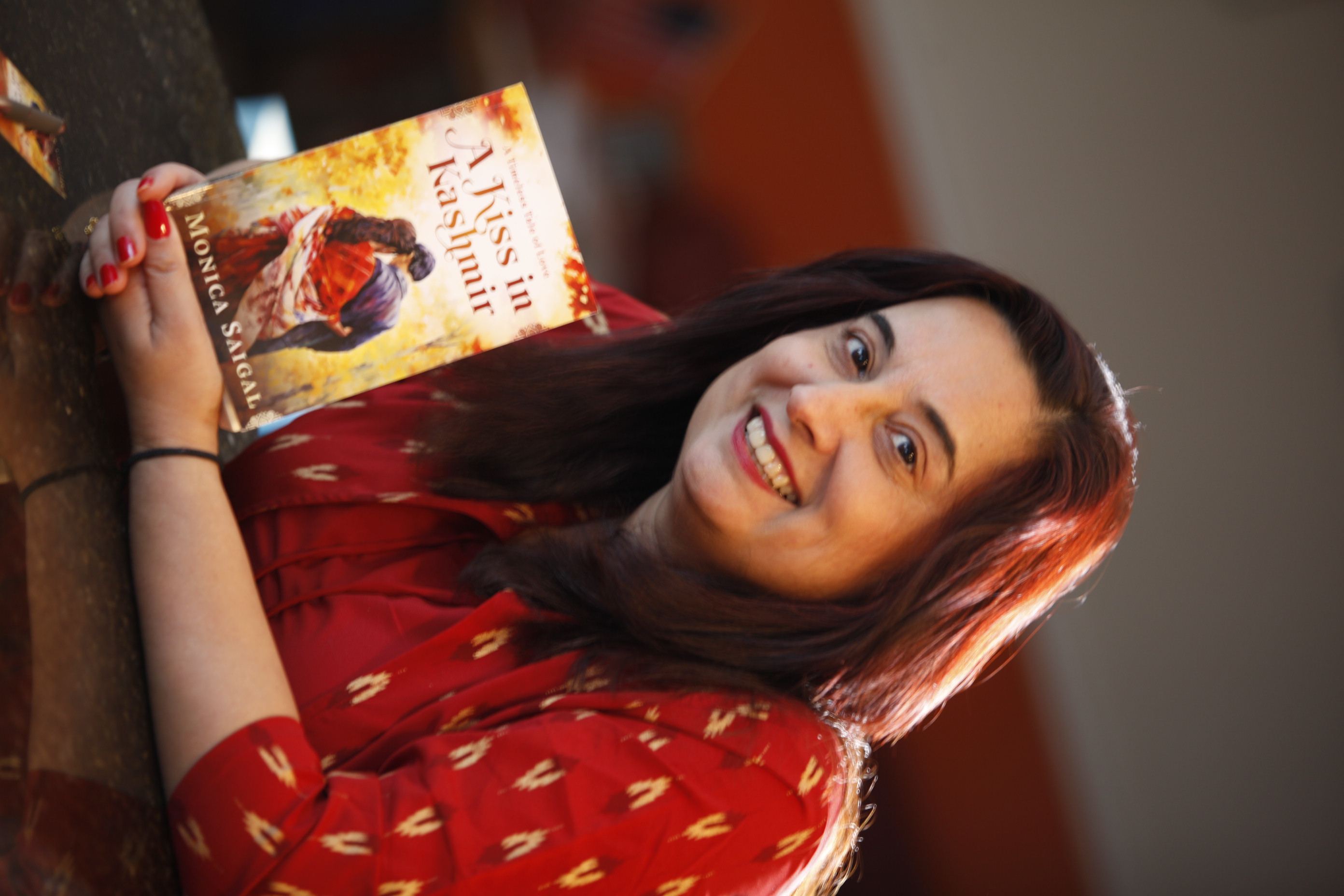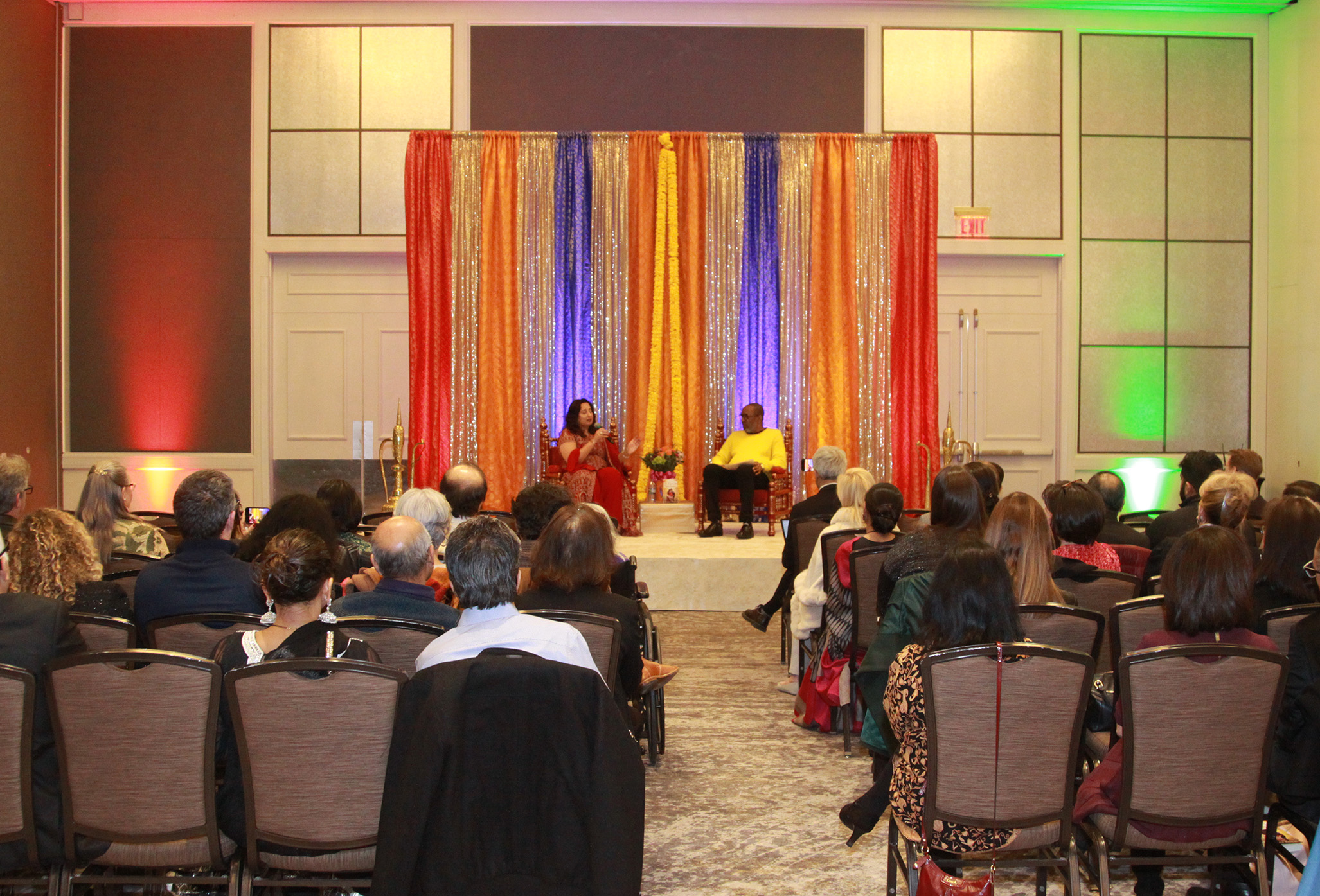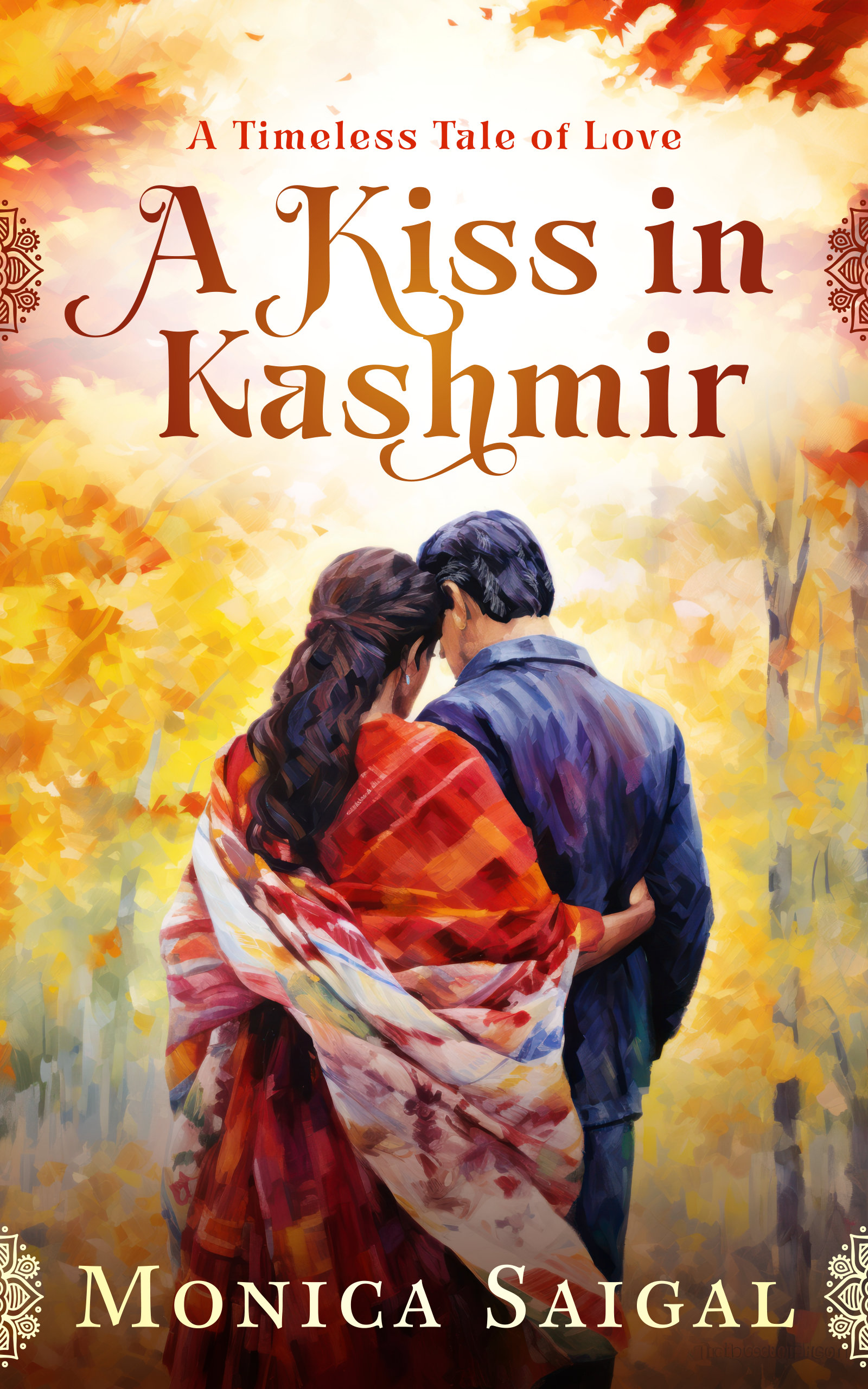Interview with Monica Saigal
Jordan Wright
February 24, 2024
As two Northern Virginia residents with careers in food writing, Monica Saigal and I met through the local food world over a decade ago. Over those many years, I have enjoyed witnessing her transition, or should I say blossoming, from successful cookbook author into novelist of international renown. Saigal’s books garner not only extensive, top-tier media coverage but also excellent reviews. As an award-winning writer, accomplished literary coach, gifted poet, storyteller, keynote speaker and educator, her cookbooks and novels have enjoyed universal appeal.
Last month Saigal, whose full-time gig is Social Media Strategist for a tech company, launched her latest love story/mystery “A Kiss in Kashmir” at the Hilton Alexandria Mark Center Hotel. Over a hundred fans including media were treated to a sumptuous assortment of Indian-centric hors d’oeuvres and desserts designed by the hotel’s Executive Chef Rajeev Sethi. Kashmiri ingredients including cardamom, almonds, saffron and cinnamon were incorporated into these delicacies and a Kashmiri Kahwa tea service was offered as well. The ever-popular local radio celebrity, Kojo Nnamdi, conducted the interview with the two dear friends seated on a lavishly decorated stage befitting an Indian wedding scene.
I spoke with Saigal after the event.
Jordan Wright – Are all your novels set in India?
Monica Saigal – “The Devil in Us” was set in the U.S, “The Soul Catcher” is magical realism, and “Karma and the Art of Butter Chicken” was set in Delhi.
JW – Your latest novel “A Kiss in Kashmir” tells a beautiful story of an older couple finding love against all odds. It is a deeply human story filled with romantic emotion. What was your inspiration?
MS – It was very selfish. I wrote the book I wanted to read. I found that most of the books I read weren’t for older people. I wanted to write a story for an older demographic that was realistic and very forward thinking. We sometimes tend to bypass the older generations in our narratives and I think that needs to change. I think people are looking for these stories.
JW – Your novels provide close-ups into the lives, environments, and emotions of many diverse Indian castes as well as those from other cultures. You gift them with intimate emotions and romantic interactions. How do you source these descriptions? Do they come from outside your circle of friends? Are they fantasies or do you draw from stories friends tell you?
MS – When I create a character, I sketch out the psychological profile of the character. Then I ask around to friends to find someone who fits the description and is willing to talk to me. Then I can fill out my profile because I don’t think I can claim to know each individual characters’ personalities. When Kojo read the book, he called me right away because, as an older widower, he identified with that profile. “I would have reacted the same way George [the hero in “A Kiss in Kashmir”] reacted,” he told me.
JW – I know you conduct writing classes for budding authors. How can locals find your schedule?
MS – On weekends I’ll be conducting classes on Healing Modalities. I have a series coming up soon. The classes will be followed by making jewelry, yoga, painting and sound healing. The schedules are posted on my website www.MonicaSaigal.com
JW – Your dialogue shows a vibrancy which contributes to the authenticity of conversations between characters. Do you record conversations while you are out and about? Or do you carry a notebook to jot down quips and quotes?
MS – I learned from many of my novelist friends how to listen and how people speak. It’s active listening. I feel people are looking for insight where there is dialogue. I used to write as if it were theoretical. Now I listen when I go to restaurants. I don’t spy on people! I want to hear how they start a sentence and how they stop a sentence.
JW – Does living in Northern Virginia influence your writing?
MS – I find a lot of serenity where I live. It is beautiful here in Virginia. I’ve lived here for over 20 years and love walking around Meadow Lark Gardens and other local parks. The Japanese have a saying, “Go and bathe in the forest.” That is what Virginia affords me.
JW – In your early writing it was your cookbooks that established your writing career with your reputation for approachable Indian cooking. Can you find all the ingredients you need to prepare your dishes?
MS – Very easily. We used to get ingredients sent from India. Nowadays I can go to the Ashburn area where Patel Brothers has everything including freshly made rotis and pickles.



